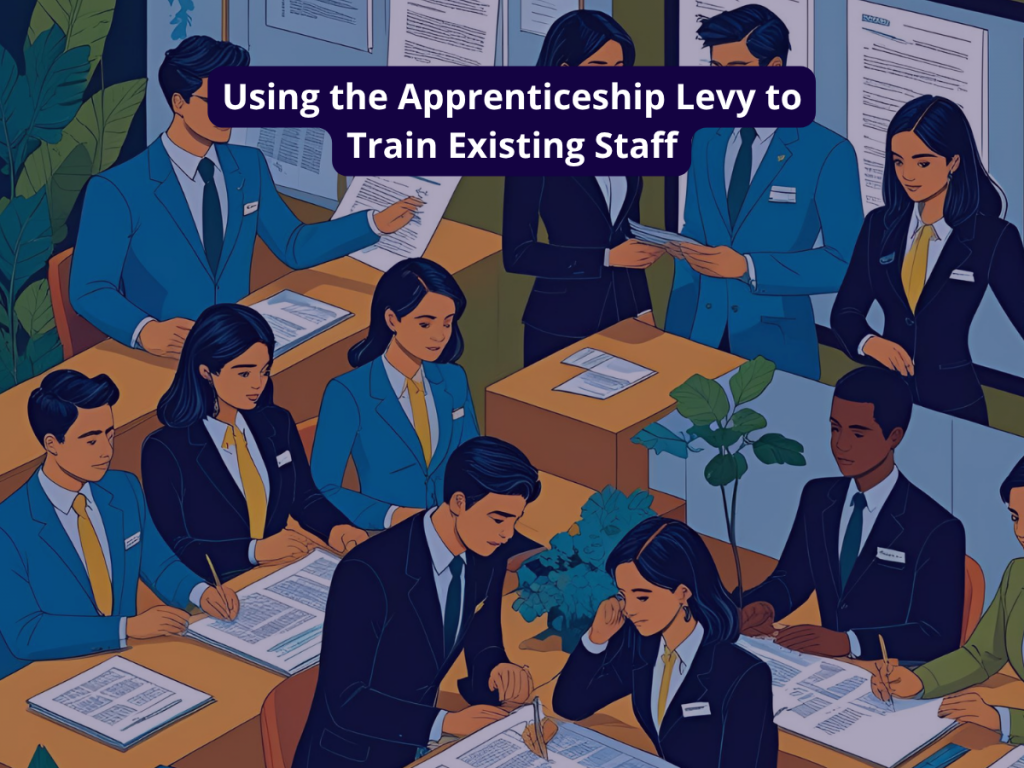Law Apprenticeships UK: Your Guide to Legal Training
Law Apprenticeships UK: Your Guide to Training with Datalaw Embarking on a legal career no longer requires following the traditional university route. Law apprenticeships UK

The Apprenticeship Levy, introduced in the UK, is a funding system designed to encourage employers to invest in apprenticeship programs. It requires employers with a pay bill over £3 million a year to contribute 0.5% of their total pay bill into a fund, which can be used to train apprentices. This initiative not only aims to boost the number of apprenticeships but also offers a unique opportunity for businesses to upskill their existing workforce.
The first step in utilising the Apprenticeship Levy for training existing staff is to conduct a thorough skills gap analysis. This involves identifying the current skills of your workforce and comparing them against the skills needed for future growth and competitiveness. By doing so, you can pinpoint specific areas where apprenticeship training can be most beneficial.
Apprenticeships are no longer limited to entry-level positions and traditional trades. Today, they encompass a range of levels and sectors, including higher and degree apprenticeships. Employers should explore the various apprenticeship standards and frameworks available to find those that align with their organisational goals and the identified skills gaps.
Selecting the right training provider is crucial for the success of the apprenticeship. Employers should seek providers who offer quality training and have experience in the relevant industry. Collaboration is key; working closely with the provider ensures that the training is tailored to meet both the needs of the business and the individual employee.
Employers should aim to fully utilise their levy funds. This can be achieved by enrolling multiple employees in apprenticeship programs or by investing in higher-level apprenticeships that offer more specialised skills. Additionally, if the levy fund is not fully used, employers can share it with other organisations, such as suppliers or partners, fostering a culture of learning and development within their industry.
Supporting employees during their apprenticeship is vital. This includes providing time off for study and training, mentorship, and practical support in applying new skills in the workplace. Encouraging a supportive work environment helps in maximising the benefits of the apprenticeship for both the employee and the organisation.
To gauge the effectiveness of the apprenticeship training, it’s important to measure its impact on the business. This could include improvements in productivity, employee retention rates, and the development of new competencies within the workforce. Tracking these metrics helps in understanding the return on investment and in making informed decisions about future training initiatives.
Leveraging the Apprenticeship Levy to train existing staff is a strategic move that benefits both employers and employees. For businesses, it’s an opportunity to enhance skills, improve productivity, and remain competitive. For employees, it offers professional development and career progression opportunities. By adopting a thoughtful approach to using the Apprenticeship Levy, organisations can significantly enhance their human capital and contribute to a more skilled workforce.
Law Apprenticeships UK: Your Guide to Training with Datalaw Embarking on a legal career no longer requires following the traditional university route. Law apprenticeships UK
Paralegal Apprenticeships: Kickstart Your Legal Career A career in law does not have to start with university. Paralegal apprenticeships provide a structured, hands-on route into
Legal Apprenticeships UK: A Pathway to Success The legal profession is evolving, and Legal Apprenticeships UK offer an alternative route to qualification that combines practical
Your Ultimate Guide to An Apprenticeship in Law UK Embarking on an apprenticeship in law UK is an excellent way to gain practical legal experience
SQE Apprenticeships: Secure Funding For Your Legal Career For those already working in law firms, progressing to full solicitor qualification can be an expensive and
SQE Funding: Financial Support in Solicitor Apprenticeships The Evolving Landscape of Legal Education The introduction of the Solicitors Qualifying Examination (SQE) has transformed the pathway